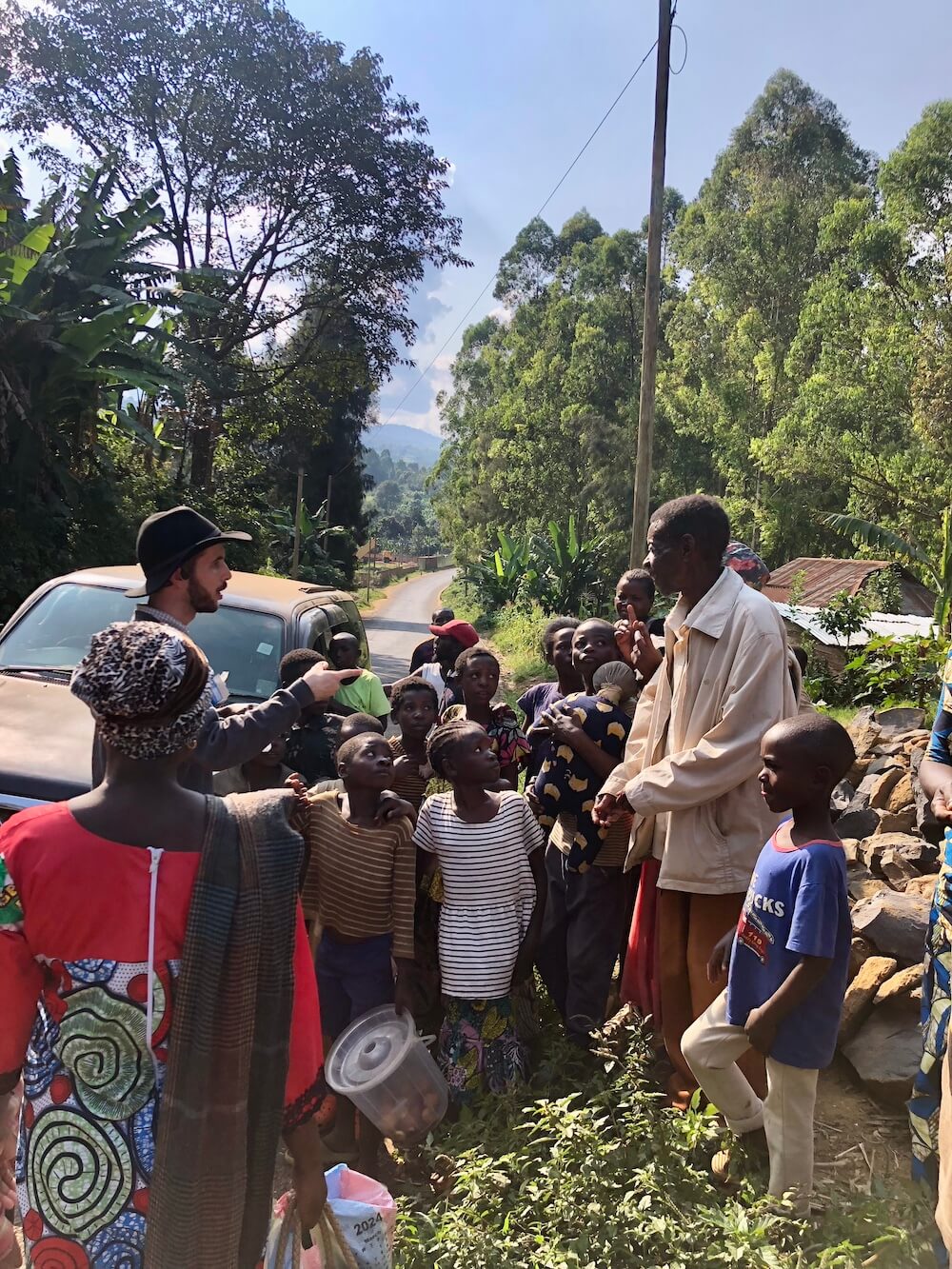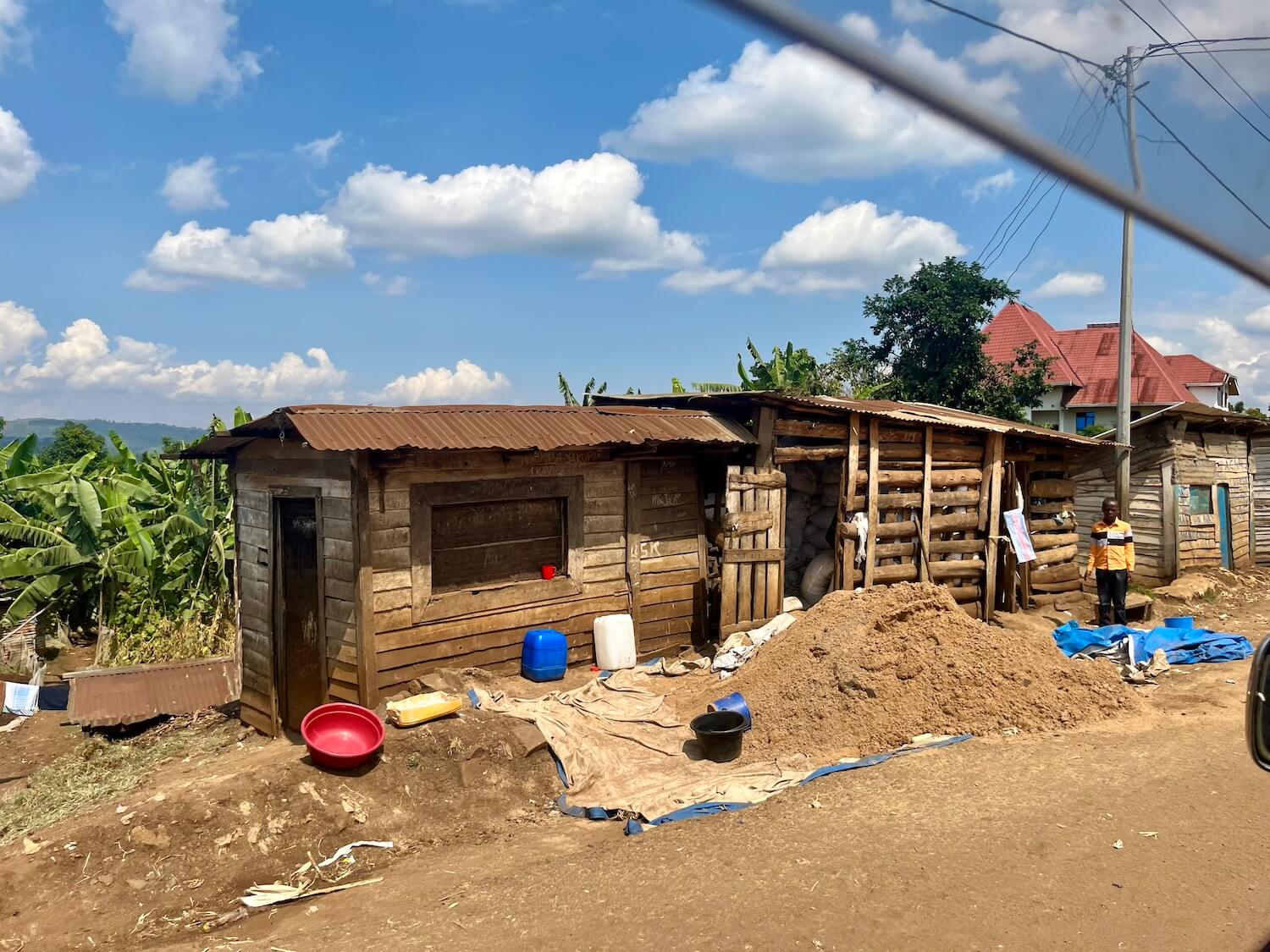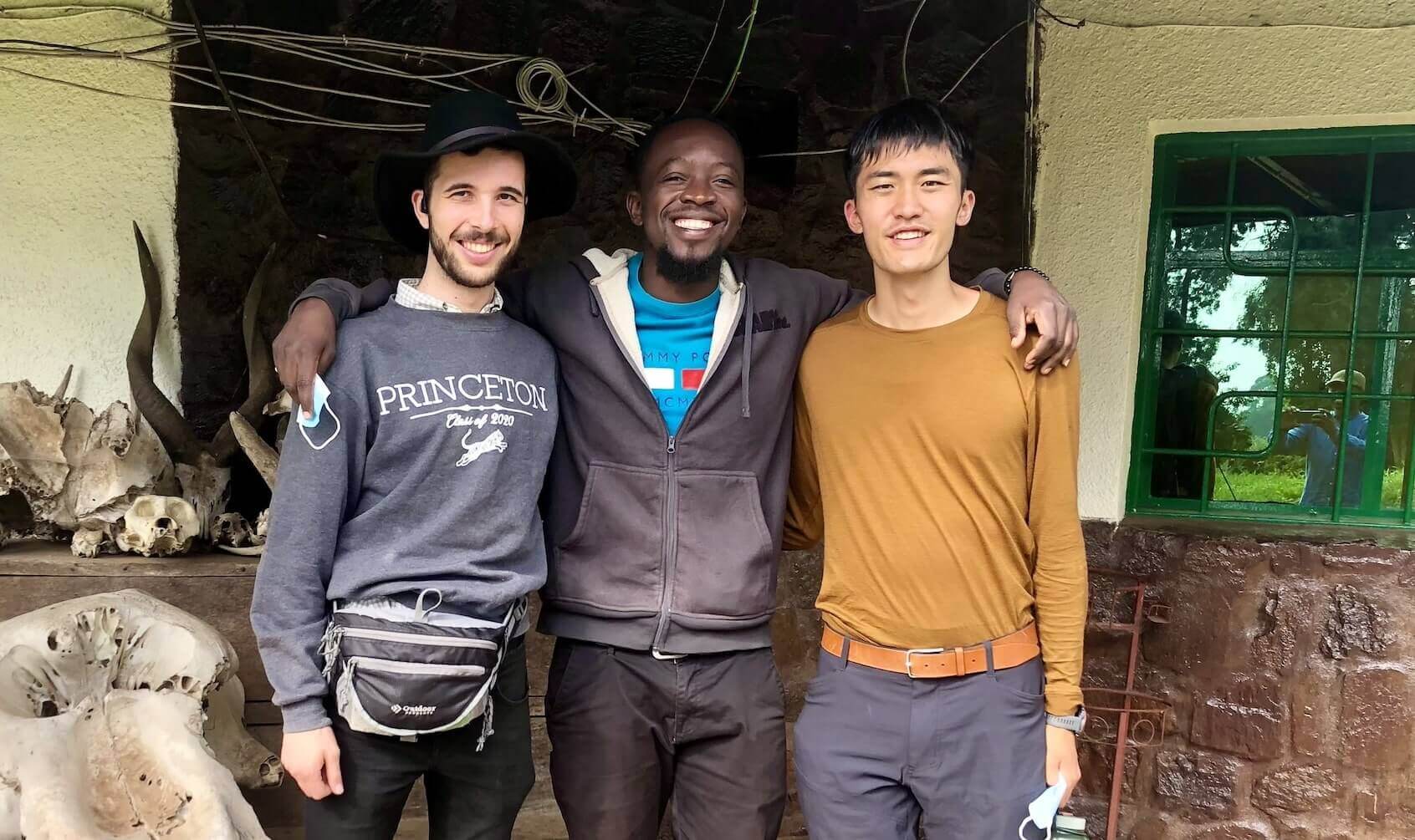
I visited the Democratic Republic of the Congo (DRC) in May 2024, as part of my East Africa trip with my college friend Allen Liu. We took a cramped night bus from Kigali in Rwanda to the Congolese border town of Bukavu. I barely slept, partly due to being squished in the jam-packed vehicle, and partly because the driver thought it would be a great idea to blast loud music the entire ride. The Eastern DRC has a reputation for being a dangerous region. In fact, the park in North Kivu province that we initially hoped to visit told us all tours were shut down because the M23 rebels were operating within the park's borders. We therefore arranged to meet a guide, Emery, and to visit the (relatively) safe region of South Kivu. Emery was a friendly Congolese teacher at the Bukavu University who was about our age, and whose conservation research took him into areas that were controlled by the M23 rebel group. One of the most interesting aspects of my Congo trip was gaining a better understanding of just how complex political struggles in East Africa can be.
Bukavu is a city that straddles the DRC's border with Rwanda. Its population is around 1 million, and it definitely was chaotic. I was surprised that, although the Congolese Franc was the official currency, almost everyone dealt in US dollars. I had my first first-hand encounter with bribery when crossing the border back into Rwanda. A friendly border guard I was chatting with asked me for money to buy a water bottle, which I later learned is a regional standard request for a bribe. I do not like giving people money as a bribe, but I have nothing against sharing food or water, so I insisted that he take my actual water bottle and some Indian snacks my father had given me. Confused and bemused by my apparent naivete, the guard did not take my food or water bottle and let me through. Thus, through enthusiastic cluelessness, I avoided having to pay a bribe.
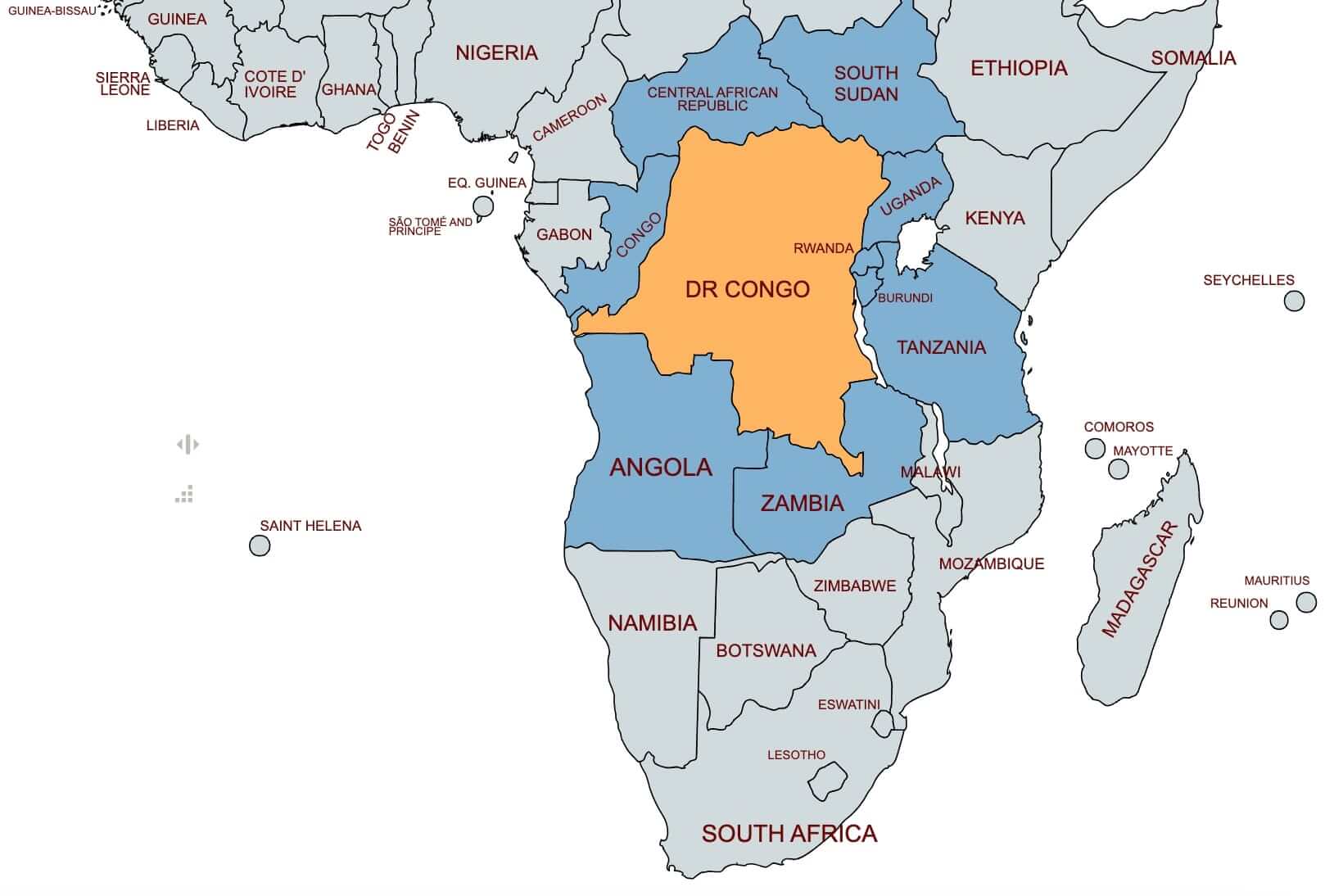
Studying the DRC's history is challenging because the nation contains so many different ethnic groups, each of which has its own unique history. Between around 1390 and 1857, the Kingdom of Kongo ruled the western tip of the DRC, along with parts of Angola and the Republic of Congo (a neighboring country easily confused with the DRC). In 1885, Belgium's King Leopold II convinced other European leaders to grant him the DRC as his personal property, which was ironically called the Congo Free State. Leopold never visited the region, yet his regime was arguably the most heinous of all colonial powers. His soldiers cut off the hands of locals who failed to meet strict quotas for rubber collection, and the DRC's population is estimated to have halved during his reign. Leopold profited immensely from the DRC's suffering. By 1908, international outrage prompted Belgium to annex the colony from their own king.
The DRC became independent from Belgium in 1960. In 1965, Joseph-Desire Mobutu led a coup and took control of the country. He changed his name to Mobutu Sese Seko, and renamed the country as Zaire. He remained in power as a dictator until 1997. After the Rwandan Genocide, Mobutu allowed extremist Hutus who perpetuated the genocide to seek refuge in Eastern Zaire. This started the First Congo War – also known as Africa’s World War. Among others, Rwanda, Burundi, Uganda, and Angola supported the AFDL Congolese rebel group, which sought to overthrow Mobutu. The existing regime was supported by the Angolan rebel group UNITA, Sudan, the Rwandan Interahamwe, among others. The AFDL emerged victorious in 1997, and its leader Laurent-Desire Kabila took control of the country, which he renamed to the DRC.
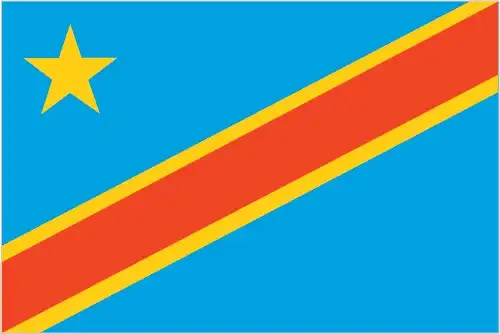
In 1998 (one year later), Kabila angered his foreign backers by insisting their forces leave his country. Rwanda, Burundi, and Uganda were not thrilled at the prospect of losing influence over this resource-rich land, and therefore diplomatically and tactfully responded by starting the Second Congo War. This time, the DRC had more international support, and its government was not overthrown. However, Kabila was assassinated by his bodyguards in 2001 and was replaced by his son Joseph Kabila. Although the Kabilas technically won the war, Rwanda and Uganda continue to support rebel groups in the DRC’s East, so the violence has not stopped. Although both countries claim to target insurgent groups that pose a threat to their security, one can only wonder if they would feel the same way if the Eastern DRC lacked its rich mineral resources, which Rwanda and Uganda both illegally exploit.
The biggest highlight of the DRC was gorilla trekking Kahuzi-Biega National Park. The park is about a 2 hour drive outside of Bukavu. When we arrived, the park rangers gave us a safety briefing. They were friendly, but sported military-style rifles because the northern tip of the park is controlled by the M23 rebel forces. They told us that we had to always keep 6 meters distance from the gorillas. We also had to wear covid-style masks to make sure we did not get the gorillas sick with any human diseases.
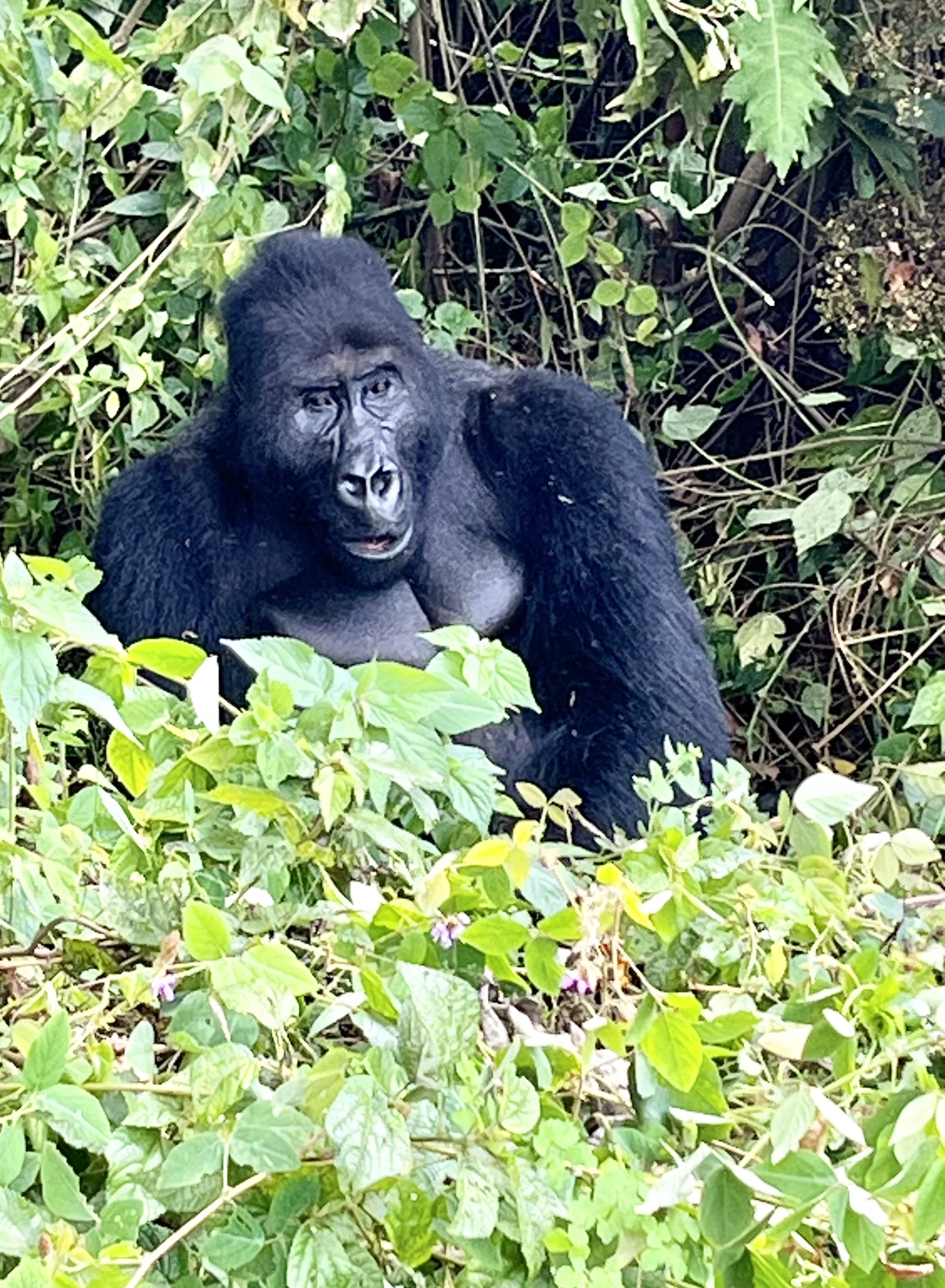
The Eastern Lowland gorillas are the largest species of gorilla, and endemic to Eastern Congo. Apparently, their social structure is very patriarchal. Adult males called “silverbacks” lead harems that include however many females they can win from other males, and their children. We bushwhacked with a guide for about an hour in a circular journey around the camp until we found a group of gorillas. For almost an hour, we observed 2-3 baby and juvenile gorillas, 2-3 female mother gorillas, and a massive male silverback. I was surprised at how the gorillas’ facial expressions and eating habits resembled our own.
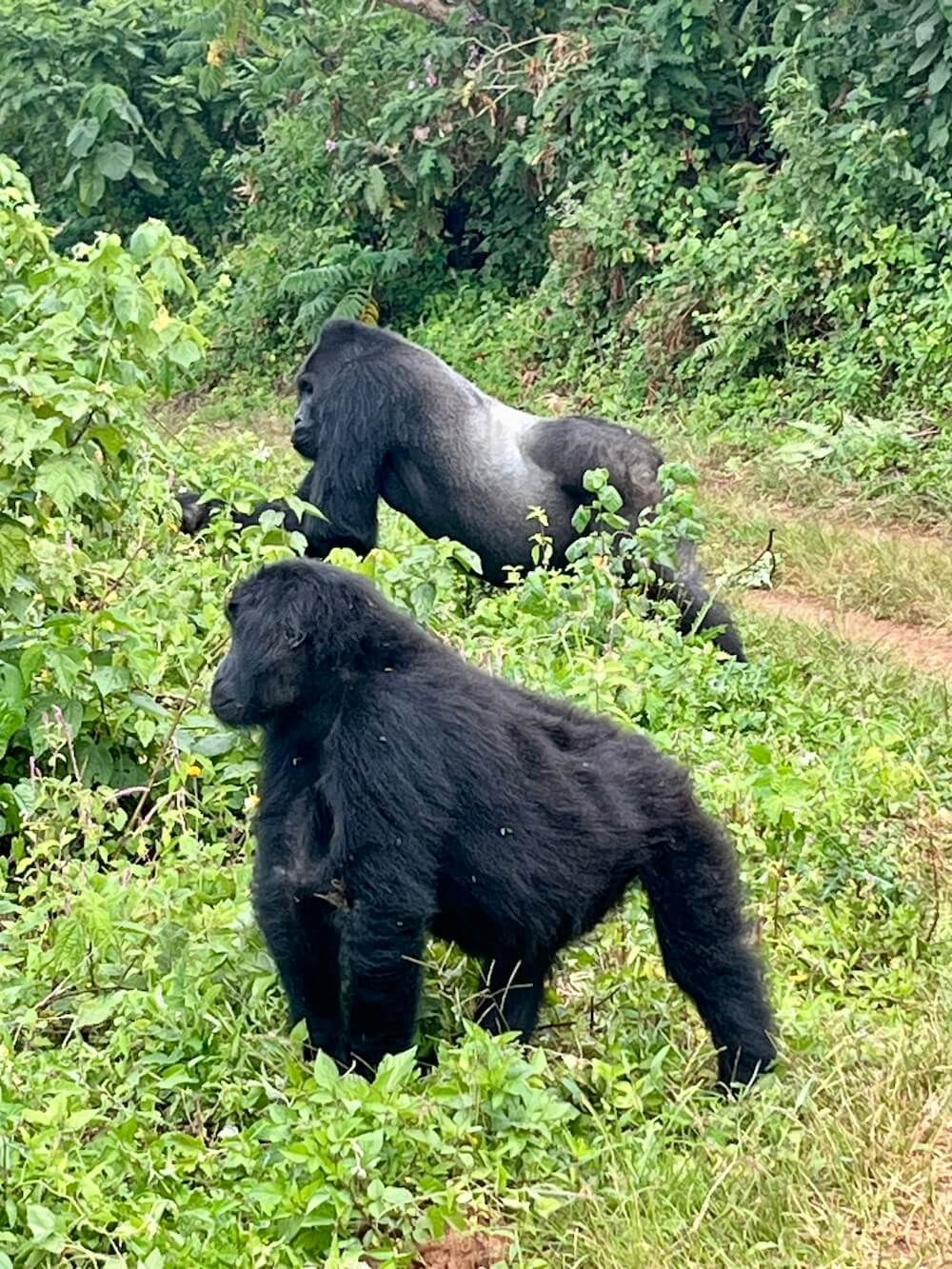
Although the roads in Bukavu were paved, the highway toward Kahuzi Park soon turned into a dirt road. On our return journey, our car got a flat tire. Since it was Sunday, everything was shut down in this deeply Christian nation. Emery went to find someone to replace the tire, leaving Allen and me in the car. We were quickly surrounded by two dozen Congolese children, who eyed our guide’s bag of bananas, clearly visible in the backseat. Two mischievous boys kept trying to open the car doors, but I refused to give them food since the bananas weren’t mine. When Emery returned, he berated the children but gave them some bananas. I remembered I had cookies and madeleine snacks in my backpack, though not enough for everyone. The guide assured me the kids would appreciate even a small amount, so I ended up handing out one Pepito cookie and half a madeleine to each child. The kids were excited and all held out their hands to receive their share. To see these young people so ecstatic over what seemed to me to be so little was truly distressing. No matter how much food insecurity the West faces, hunger in the Congo is on another level.
